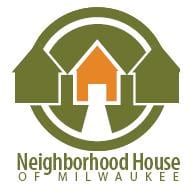Resources for Volunteers
- Making It Real: Teaching Pre-literate Adult Refugee Students
Developed byTahoma Community House Training ProjectPre-literate adult refugees present a number of challenges for teachers and programs. Unlike other learners who are literate in their own language, pre-literate students may have had no formal contact with written language before. Teachers cannot rely on students taking notes to aid memory and promote self-study. Learners may need basic instruction in how to hold a pencil and other literacy basics that we take for granted in a literate culture. Pre-literate learners may not recognize common pictorial representations that teachers often use to represent objects with literate learners. Pre literate learners may not have handled books and papers or be familiar with the cultural expectations in the classroom. Where and how do you start teaching these learners? What do you need to teach them? What do they need and want to know? This book attempts to answer these questions and reviews some effective practices for teaching pre-literate adult refugees. This book attempts to answer these questions and reviews some effective practices for teaching pre-literate adult refugees. - The Minnesota Literacy Council – When we sign up to become ESL tutors, we sometimes find out that our jobs involve more than just teaching letters and words. Instead, as literacy tutors we become friends to community members we might not have met otherwise, students of other cultures and ways of life, cultural brokers to those who are new to America. Because of the importance of literacy tutors, MLC has created a Tutor Resource Center to support you with extra resources and information with Online Tutor Training. After you are logged in, visit the Best Practices lessons for tips on how to work with very beginning students, including videos (best viewed in Explorer)
- Thinkfinity.org is Verizon Foundation’s free, comprehensive database of educational and literacy resources for teachers and students. Here are links to their free online courses for tutors including Before, During, and After- A Reading Comprehension Technique, Phonemic Awareness, Citizenship (to come),and Math.
- The Cultural Orientation Resource Center provides important orientation resources for refugee newcomers and service providers throughout the United States and overseas, including free downloadable cultural profiles of incoming refugee populations such as the Hmong, Burmese, Somali Bantu, Liberian, and more.
- WITESOL is a professional association of teachers of English to speakers of other languages in Wisconsin. It is dedicated to improve the quality or existing English-as-a-Second Language, English-as-a-Second Dialect, Bilingual and Bicultural programs, and to assist in the formulation and establishment of new programs at all levels of education in the state of Wisconsin.
- PACE Yourself: A Handbook for ESL Tutors – is a resource book for volunteer tutors. “PACE Yourself is for inexperienced or volunteer tutors of ESL. This handbook does not aim to make overnight experts of novices. Rather, the authors provide an easy-to-follow guide for people who want to tutor small groups of nonnative speakers of English but do not know how. Reproducible forms, appendixes of resources, terminology, ESL publishers, and professional organizations of interest to ESL tutors add relevant, useful information. This handbook is designed to meet your needs as a beginning tutor of ESL. It should be a key to many hours of rewarding and successful tutoring.”

